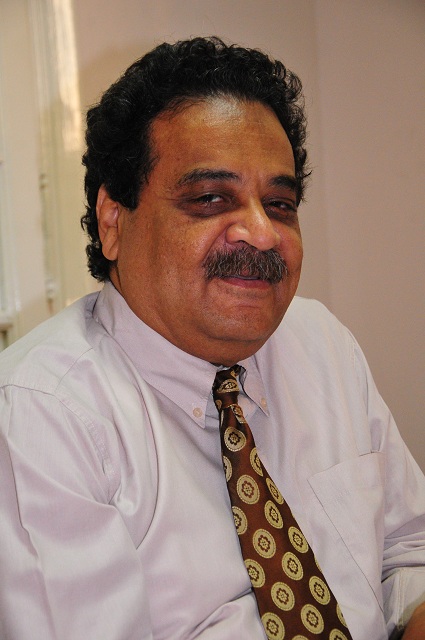
(AFP Photo)
The Giza Criminal Court sentenced Saturday 23 defendants to 14 years in prison on charges of killing Shi’a cleric Hassan Shehata.
The court also acquitted another eight defendants.
The incident goes back to 23 June 2013, when Shehata, two of his siblings, and a student were killed, while dozens of others were injured, as a result of sectarian violence in the town of Abu Mussalam, in Giza.
Before the verdict was announced, riot police heavily secured the vicinity of the court.
The killing took place when approximately 24 Shi’as gathered at a local residence to celebrate the birth of Imam Mohammed Ibn Hassan Al-Mahdi, believed to be the 12th and last imam in Shi’a Islam. The gathering was attacked by a mob armed with Molotov cocktails and other weapons.
The Egyptian Initiative for Personal Rights (EIPR) had previously stated that the incident was due to years of incitement against the minority religious group. The group said this was conducted by the leaders of Al-Azhar, state agencies, and different Islamic movements, which repeatedly considered the presence of Shi’a Muslims in the country a threat.
The violence happened days after a speech byIslamist former president Mohamed Morsi,in which he supported the Syrian uprising against the regime of President Bashar Al-Assad and accused the Syrian regime of subjecting its people to “genocide”.
During the much-criticised speech, which came days before the 30 June mass protests, a high profile Sunni preacher accused Morsi’s opposition of being “infidels”, with critics saying the that the complicated Syrian conflict was oversimplified by Morsi into a Sunni-Shi’a feud.
In April 2013, during Morsi’s reign, Egypt’s Ministries of Foreign Affairs and Civil Aviation set regulations restricting the activities of Iranian tourists in Egypt, limiting them to sites such as the ancient city of Luxor and Red Sea resort areas like Sharm El-Sheikh.
During the same period, the Salafi Call, the religious arm of the Al-Nour Party, warned of a “Shi’a tide” in Egypt, and called for a ban on any contact with Shi’a people.The incident happened whendozens gathered by the acting Iranian ambassador’s house demanding the cutting of all ties with Iran and the expulsion of Iranian tourists.
Even after the ouster of Morsi, Minister of Religious Endowments Mohamed Mokhtar Gomaa rejected any celebrations by Shi’a of the Islamic Ashura holiday inside mosques, calling on authorities to implement the decision.


